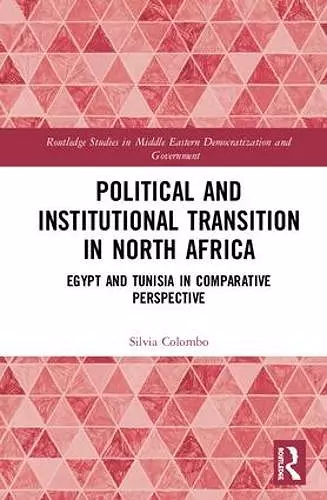Political and Institutional Transition in North Africa
Egypt and Tunisia in Comparative Perspective
Format:Hardback
Publisher:Taylor & Francis Inc
Published:18th Jun '18
Currently unavailable, and unfortunately no date known when it will be back
This hardback is available in another edition too:
- Paperback£43.99(9780367589905)

The year 2011 will go down in history as a turning point for the Arab world. The popular unrest that swept across the region and led to the toppling of the Ben Ali, Mubarak, and Qaddhafi regimes in Tunisia, Egypt, and Libya has fundamentally altered the social, economic, and political outlooks of these countries and the region as a whole.
This book assesses the transition processes unleashed by the uprisings that took place in Egypt and Tunisia in 2011. The wave of unrest and popular mobilisation that swept through these countries is treated as the point of departure of long and complex processes of change, manipulation, restructuring, and entrenchment of the institutional structures and logics that defined politics. The book explores the constitutive elements of institutional development, namely processes of constitution making, electoral politics, the changing status and power of the judiciary, and the interplay between the civilian and the military apparatuses in Egypt and Tunisia. It also considers the extent to which these two countries have become more democratic, as a result of their institutions being more legitimate, accountable, and responsive, at the beginning of 2014 and from a comparative perspective. The impact of temporal factors in shaping transition paths is highlighted throughout the book.
The book provides a comprehensive assessment of political and institutional transition processes in two key countries in North Africa and its conclusions shed light on similar processes that have taken place throughout the region since 2011. It will be a valuable resource for anyone studying Middle Eastern and North African politics, area studies, comparative institutional development and democratisation.
"Years after the Arab Spring the reasons of failure and success of different attempts of transition are still largely undetermined. Through an enlightening binary comparison of Egypt and Tunisia and thorough, first-hand field research, Colombo presents the most advanced analysis of the phenomenon to date. This is a compulsory reading for anyone interested in the Middle East and North Africa as a scholar, student or practitioner." - Leonardo Morlino, Professor of Political Science at Luiss University, Italy and former President of the International Political Science Association (IPSA)
"Tunisia and Egypt: so close and yet so far apart. Both countries were bent on unsustainable paths, both succeeded in overthrowing entrenched dictators. Yet after a brief moment of general euphoria, Tunisia and Egypt took dramatically divergent paths. Why? Silvia Colombo meticulously dissects the institutional dynamics underpinning and explaining changes and continuities in Tunisia and Egypt. A must read for anyone wishing to understand the contrasting and contested trajectories of North Africa and the Middle East."- Nathalie Tocci, Director of the International Affairs Institute (IAI), Italy and Special Advisor to the EU High Representative Federica Mogherini
ISBN: 9780815347095
Dimensions: unknown
Weight: 430g
194 pages